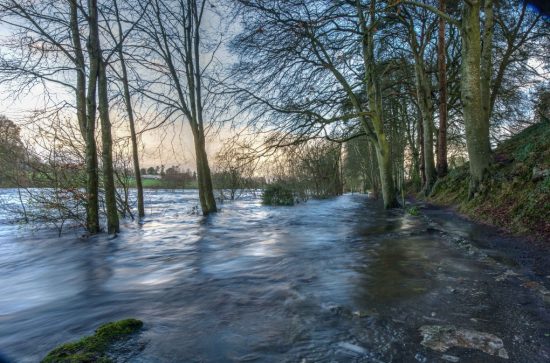
New research at Maynooth University’s ICARUS Climate Research Centre shows clear evidence that humans are changing Ireland’s climate and highlights the need for climate adaptation measures particularly in flood protection.
The study, published in the peer-reviewed scientific journal Weather and Climate Extremes, analysed Irish temperature and rainfall records, some dating back to 1850, and linked changes to global temperature fluctuations. The team then statistically quantified how much the Irish climate has changed since early industrial conditions when natural climate variability dominated, to being ‘unusual’ or ‘unfamiliar’ relative to that benchmark.
The findings show that annual average temperature in Ireland is the strongest indicator of human induced climate change. As a whole, the island of Ireland is warming at a rate of 0.88˚C per 1˚C increase in global temperature, with annual temperatures now ‘unfamiliar’ relative to early industrial climate.
Locations in the east and midlands show the greatest rate of warming in annual temperature, the highest at Phoenix Park which is warming at 1.14 ˚C for every degree increase in global temperature, followed by Armagh, Birr, and Dublin, all warming at a rate of over 1 ˚C.
An analyses of rainfall data shows that many weather stations across the country are experiencing substantial increases in winter rainfall per degree of global warming, indicating considerable increases in flood risk.
One third of the 30 rainfall stations analysed also show increases in rainfall intensity (the heavy rainfall that often causes surface flooding, especially in urban areas) and are considered ‘unusual’ relative to early industrial climate. On average, rainfall intensity in Ireland is increasing at a rate of 8.2% per degree of global warming.

“These results clearly tell us that adaptation to the impacts of climate change needs to be given greater emphasis in national and local climate policy. Climate change is here, and it is evident in our weather observations.”
“It also gives us a new tool that allows local scale changes in climate to be scaled to global mean surface temperature, providing insight into how past, and importantly future changes, at the global scale relate to Ireland.”
The research was conducted with the MSc Climate Change class at Maynooth University, together with researchers at Maynooth and Met Éireann and funded by the Environmental Protection Agency through the HydroDARE project (Grant number: 2022-CE-1132).
This project is funded under the EPA Research Programme 2021-2030 and co-funded by Met Éireann. The EPA Research Programme is a Government of Ireland initiative funded by the Department of the Environment, Climate and Communications.









